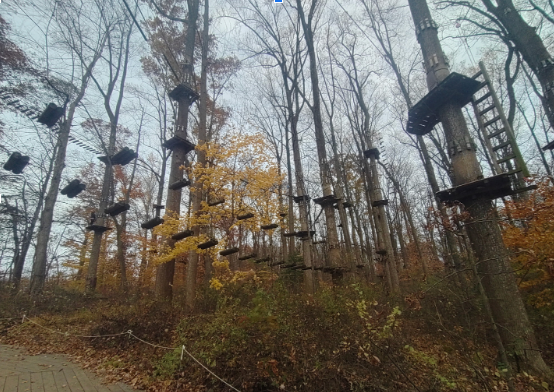As School Resumes, Students Across the DMV Express Outrage at Deployment of National Guard
- Rohan Tatlow
- Nov 2, 2025
- 3 min read

As students return to Walls, they may have noticed a change in the urban community which surrounds our school. This change being the presence of the National Guard. These troops span across the city, at Metro stops and circling monuments.
In a lawsuit filed over the employment, DC Attorney General Brian Schwalb wrote that the Guard’s presence is “illegal federal overreach.” However, the President says it is legal and necessary to make DC safe and beautiful.
Most importantly, the National Guard, ICE, and Donald Trump have been challenged most by residents themselves, as they find themselves on the frontlines, organizing large protests.
On September 6, the streets of DC were filled with the sound of drums, megaphones, and voices chanting in unison. Protesters waved handmade signs as they represented D.C and immigrants under attack.
Quinn Pham (‘28), an immigrant and protestor at the George Washington University walkout felt like protesting was needed. She believes it is a moral necessity.
“I am a proud immigrant, and I think what's happening to our country is disgraceful,” Pham said. “I'm just going to be here to try to be on the right side of history.”
Pham joined the student-led walkouts at GW, where organizers gathered at Kogan Plaza, right next to the School Without Walls. Even before crowds assembled, GW police were already stationed at the site. GW Police and GW administration declined to comment on the matter. Pham said she hoped students would outnumber police and make their voices heard.
Across the district, similar walkouts have spread through schools and universities, drawing thousands of students into the streets. Many see these protests as part of a broader push not only for D.C. autonomy but also for a more just future.
The Free DC project declined to respond to the Rookery’s questions, however the Free DC protests co-organizers, the Sunrise Movement responded and framed the fight for statehood as deeply connected to struggles over climate change, housing, and racial justice.
“In America and around the world, fascism is on the rise,” said Denae Ávila-Dickson, a Sunrise Movement spokesperson. “If people like Trump successfully cement their grip on power for the next decade, it will make everything our movements are fighting for exponentially more difficult.”
Ávila-Dickson emphasized that young people, especially students, were at the center of organizing. “In just a few weeks, they organized over 1,000 of their peers to walk out across D.C. They had powerful conversations in their schools and communities about why these protests matter. These students are showing the entire country what it looks like to stand up to authoritarianism.”
But the protests have not been without risk. Plans for at least one student walkout at local Jackson-Reed high school were abandoned after fears spread of ICE raids targeting participants. One student organizer said they were shocked upon receiving the threats and “worried for the safety of the protestors,” prompting a cancellation of the planned protest.
Concerns about detentions and National Guard deployments have heightened anxiety across the city. For many immigrants like Pham, those threats underscore what’s at stake. “What’s happening to our country is disgraceful.”
Though senior D.C congressional delegate Eleanor Holmes Norton declined to comment,. Maryland congressional representative Jamie Raskin argued that “The Free DC protests are a really critical part of the movement to get statehood for Washington and to guarantee democratic self-government and equal rights.” He elaborated, “I'm thrilled that the young people are getting into it. This is how America has changed.”
Commenting on the threats of ICE intimidation, Raskin noted, “There are lots of complicated political, moral, ethical, and practical dilemmas that are going to face kids who are organizing, but I'm just really glad that they're thinking along these lines.”
Despite the challenges, organizers vow to continue protesting and building momentum. “Donald Trump needs our silence, fear, and obedience to win,” Ávila-Dickson said. “However, young people are going to carry forward the American tradition of participation in the political process and use our First Amendment rights to expose his corrupt and dangerous agenda.”
For Pham, that commitment is personal. Standing among students, Pham said the protests are about more than just D.C. autonomy — they are about refusing to accept authoritarianism as the new normal.








